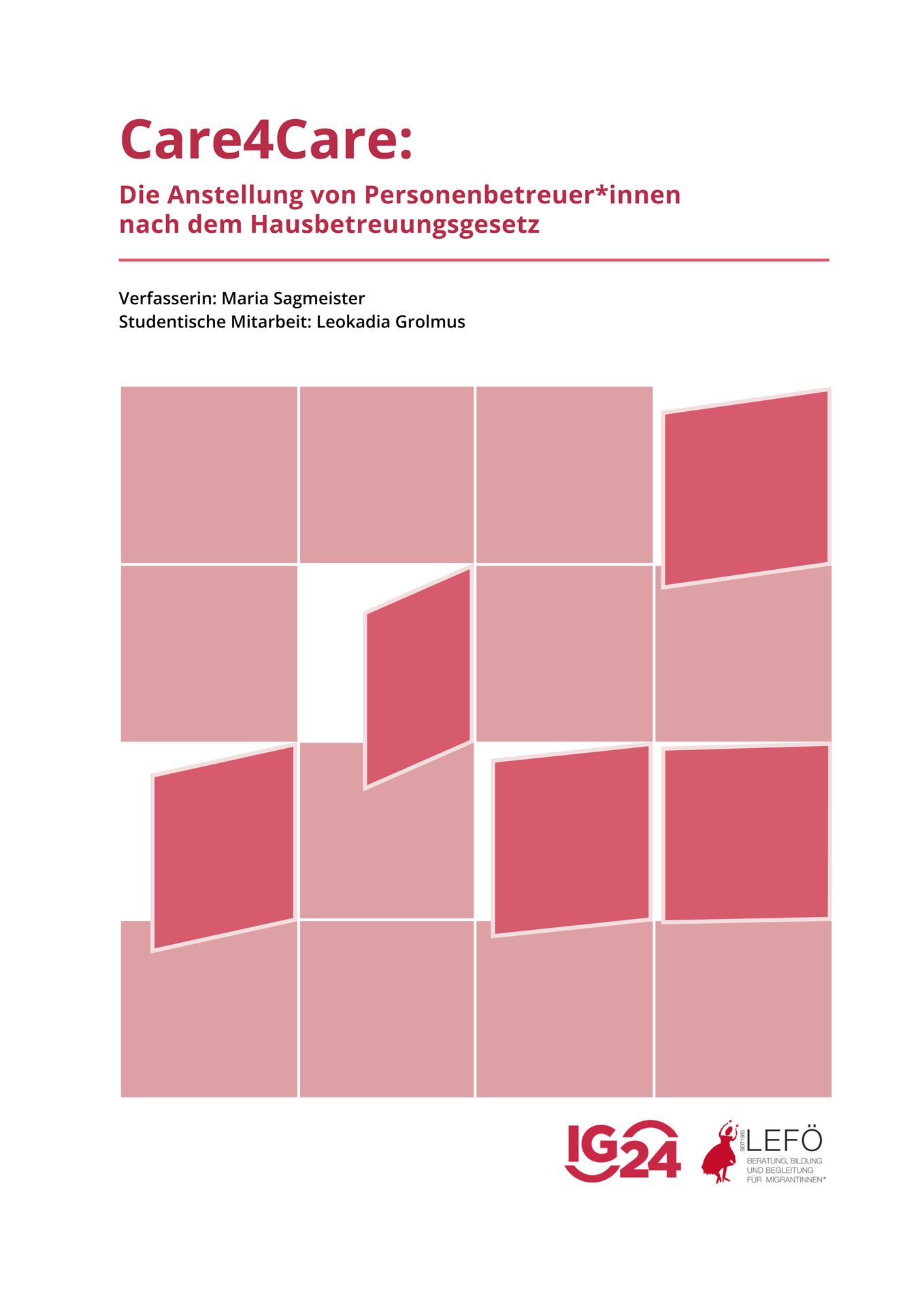Based on the current legal situation, this study compiles the labour and social law foundations for an employment model in personal care in Austria. In 2007, the Home Care Act (HBeG) created a separate legal basis for so-called 24-hour care, which contains both a self-employed and an employed model. In practice, the self-employed model with the involvement of placement agencies has prevailed to date. However, employment has significant advantages – both for carers and for families who make use of personal care.
The study presents the so-called household model (employment by private individuals in the household) and the agency model (employment by non-profit organisations) and highlights differences in terms of the applicability of different legal bases and their consequences, for example with regard to remuneration. The sponsorship model proves to be more favourable in many respects.
The study also takes a critical look at problems and challenges relating to excessively long working hours and limited access to some social benefits due to commuter migration.

